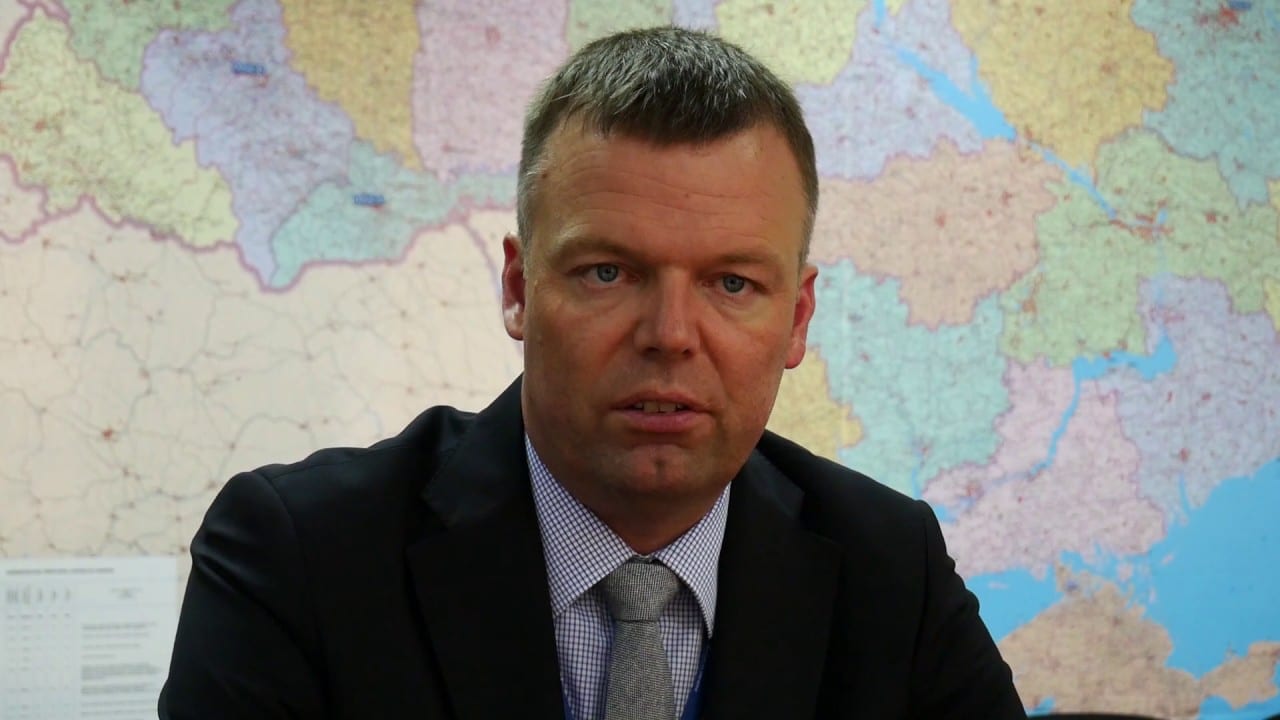In his interview to the Foreign Policy Alexander Hug, Deputy Chief Monitor of the OSCE Special Monitoring Mission to Ukraine declared lack of direct evidence of participation of the Russian Federation in Donbass conflict and noticed that everyone is free to buy the Russian military uniform in any shop. However, remarkable it may be, the OSCE Representative made such statement the day before his resignation. Such unexpected and uncovered tribute to Kremlin certifies to the fact that Hug’s statements are synchronized with Kremlin “grey eminence”, while OSCE’s objectivity and ability to perform their function in Donbass properly have often raised great doubts.
Since Mr. Hug’s statements do not hold water, such unprofessional opinion declared on behalf of the whole monitoring mission causes significant damage to the OSCE image and confirms its engagement as well as the fact that formerly authoritative and solid organization discredited itself and called into question its ability to perform the role which historically was assigned to it. The use of this organization’s authority for dissemination of unveracious data and subjective data interpretation, is unacceptable for heads of such level.
Hug’s statement contravenes EU shared position concerning the Russian Federation. His words also call into question advisability of sanctions policy against Russia and weaken EU unity in a question of counteraction to aggressive Kremlin actions. Hug’s speech appeared right after the resolution of the European Parliament on strengthening sanctions in case of aggravation of a situation in the Sea of Azov as well as declared support of sanctions policy by the Austrian Foreign Minister K. Kneissl (Austria presides in the EU Council).
However, there are a lot of questions to the OSCE aside from that. One should ask, why monitoring mission was not admitted in due time to the place of MH-17 crush, as well as to the places of shootouts and Zakharchenko murder while the Russian intelligence agencies and the Investigative Committee of the Russian Federation played there the master. By the way, daily reports of the OSCE Monitoring Mission constantly record Russian military equipment, weapons and military personnel in the combat zone.
Documents recorded movement of motor columns, particularly equipped with antiaircraft mounting, through uncontrolled sector of the Ukrainian-Russian border even as of October 23 this year. At the same time there were no official statements and claims from the OSCE in this regard.
Resignation of the Swiss official was not overlooked by ORDLO (Separate regions of Donetsk and Luhansk territories). D. Pushilin, leader of Donetsk terrorists, gave positive estimate to Hug’s performance and noted that positive moments of cooperation prevail over negative ones.
One should also bring to notice that should be a penultimate interview of Alexander Hug as the first deputy head of the OSCE Special Monitoring Mission in Ukraine. The last was scheduled in temporarily occupied territory of Donbass. Such sequence serves as unambiguous hint about those whose allowance was worked out by this official of the international organization.
As we know, while working for the OSCE (Bosnia and Herzegovina, Kosovo, the Gaza Strip) Hug maintained close contacts with Russian representatives in this organization. It is quite possible that the latter offered Hug support and assistance in further career growth within the organization or within other international authorities upon termination of his functions in the OSCE. We will keep an eye on it and get to know in the course of time.
It may also happen that Hug became a target for blackmail by the Russian intelligence agencies. As is known, in July, 2018 internal documents of the OSCE Mission to Ukraine, including briefs on mission members (personality traits, tendency to alcohol, financial position, interest in the opposite sex) and Hug’s communications profile. The OSCE Mission did not report the results of investigation.
We may only hope that the end of Hug’s commission in monitoring mission and his substitution with Mark Etherington from Great Britain will favorably affect objectivity and overall performance of the OSCE Special Monitoring Mission in Ukraine. To the best of our knowledge, communications with the Russian intelligence agencies and Kremlin involve further consequences for engaged foreign politicians and heads of various international organizations. The new Chief Monitor of the OSCE Special Monitoring Mission to Ukraine and other officials and representatives of influential international organizations should think thoroughly about the aftermath of “close” communications with the Russian Federation and their intelligence agencies. Short-term benefits can turn into much bigger losses for them and for the European safety.

